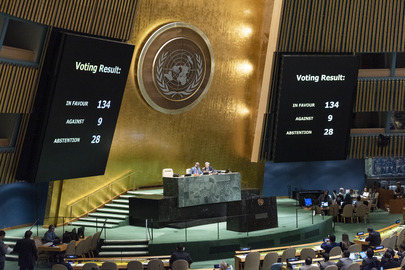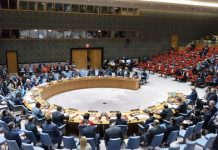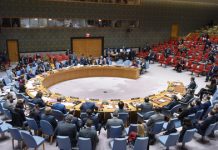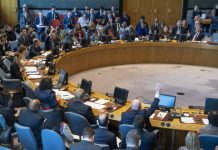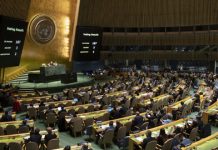Anacláudia Rossbach assumed the post of Executive Director of UN-Habitat, which is based in Nairobi, Kenya, on 12 August. She is an economist with more than two decades of experience working on issues of housing, informal settlements, land and urban policies.
Making cities and human settlements inclusive, safe and resilient is among the 17 Sustainable Development Goals (SDGs), which provide a pathway to a more just and equitable future by 2030.
SDG 11 calls for ensuring that everyone has access to adequate, safe and affordable housing, upgrading slums, and increasing the number of cities implementing policies on adaptation to climate change, among other targets.
Huge housing challenge
‘The dimensions of the housing challenge that we face are huge,” Ms. Rossbach told UN News during a recent visit to New York. “We say that we need to build 96,000 houses a day in order to meet the 2030 targets.”
Additionally, one billion people are living in informal settlements, representing another challenge for the international community, while efforts to create more affordable housing globally must also consider the impact on the natural environment.
“We also face a challenge in terms of strengthening the capacity of local governments – reshaping national policies, reshaping legal frameworks, so that they operate in a way that enables local actors to have access to financial resources, to have access to policies and technical resources, and help them to implement the policies locally and design their own policies”, she added.
We can’t do it alone
Ms. Rossbach is adamant about “localizing” the SDGs, which she said has helped to strengthen efforts by local governments and cities to achieve the Goals. She also stressed the importance of forging coalitions and networks.
“I see UN-Habitat as a hub, as a convener, of other UN agencies and stakeholders. The magnitude of the problem and the challenges are so big that there’s no agency, no programme, that can tackle it alone,” she said.
She explained that the agency must work with academia, researchers and organizations that provide technical assistance to cities and local, regional and national governments, and with multilateral development banks, international financial institutions, and similar entities.
Towards global consensus
UN-Habitat will also have “to gather the solutions and identify the trends, to be able to get and improve the data that we have available,” she added, while also working closely with governments “to keep going and moving towards consensus”.
Ms. Rossbach recalled that UN-Habitat Member States have approved several “very interesting resolutions”, including a renewed call to prioritize affordable housing for all and another on accelerating the transformation of informal settlements and slums.
“This reveals consensus,” she said. “This reveals that countries are very aware of the needs and priorities that we need to face.”
Change the game
The new UN official also emphasised the need for long-term planning so that proper policies are in place to provide shelter for people who need it – and to address the climate change threat.
“We need to overcome structural problems, structural inequalities, structural spatial segregation, and basically change the way we have done policies until now,” she added.
“So, we have to strengthen the policies, but also change perspective a little bit, and really target people, recognizing that people should be at the centre.”
Source of original article: United Nations (news.un.org). Photo credit: UN. The content of this article does not necessarily reflect the views or opinion of Global Diaspora News (www.globaldiasporanews.com).
To submit your press release: (https://www.globaldiasporanews.com/pr).
To advertise on Global Diaspora News: (www.globaldiasporanews.com/ads).
Sign up to Global Diaspora News newsletter (https://www.globaldiasporanews.com/newsletter/) to start receiving updates and opportunities directly in your email inbox for free.


